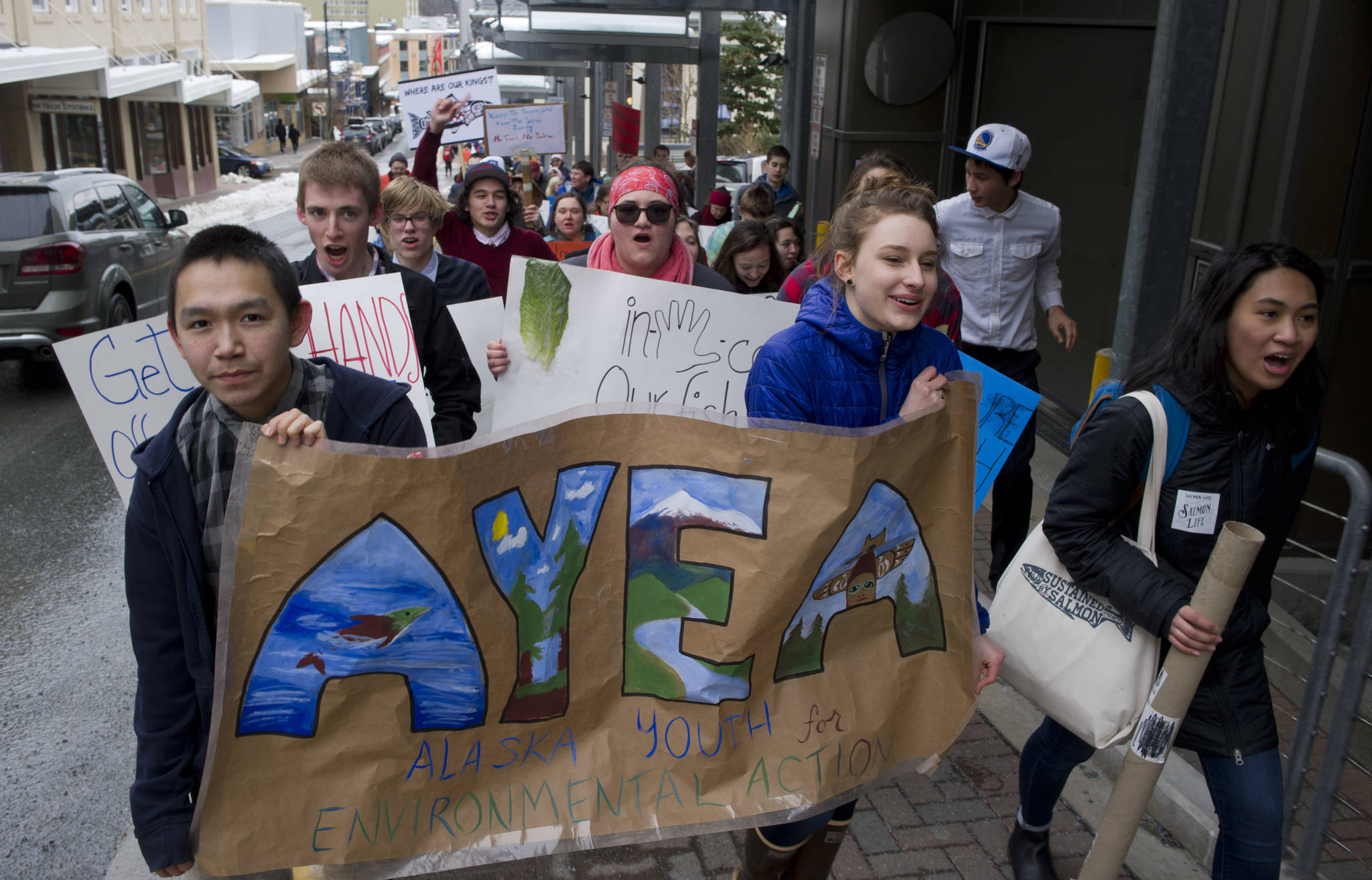Millennials: self-centered, glued to their phones and unable to focus on anything longer than a six-second gif.
Alaska’s youth know how to turn that stereotype on its head as anyone attending Friday’s March for Salmon could see. The event, put on by The Alaska Center, was the culmination of a week of political engagement from students representing every corner of the state.
Nineteen AYEA representatives descended on the Capitol building this week to collaborate with legislators on salmon conservation. They set out to prove that the state’s emerging voters are looking out for the environment, and if lawmakers don’t heed their call to action, their jobs will soon be on the chopping block like, well, a nice king salmon.
AYEA is backing two bills this legislature: House Bill 14 and House Joint Resolution 9. HB 14 is crafted to further regulate mines similar to the proposed Pebble Mine, a project that’s expected to negatively affect lucrative fishing grounds in Bristol Bay.
“Basically, it strengthens the regulations that people need to get before developing metallic sulfide mines,” Chugiak High School senior Carly Dennis said.
HJR 9 asks the federal government to intervene in disputes between Canada and the U.S. over proposed mines upriver from Southeast salmon habitat. Those mines could affect salmon near Ketchikan High School senior Gabriel Canfield’s hometown. The senior said so-called “transboundary” mines are a “really big deal,” but that doesn’t mean the group is against resource development.
“We’re not anti-mine, that’s for sure,” Canfield said. “We just don’t want it to destroy the fisheries we already have because mining is not as sustainable, but it’s not a bad thing because everyone wants their iPhone, they want their laptops.”
Jode Sparks, a junior at Soldotna High School, lobbied legislators to oppose budget cuts for state departments that regulate salmon. Sparks heads up the budget team for AYEA.
“In Alaska, we pride ourselves on good environmental protection and having resources to protect our resources,” Sparks said. “That’s what AYEA is all about: sustainability for the environment and sustainability for Alaska’s fiscal future.”
Juneau Representative Justin Parish loved the youthful enthusiasm. Speaking from the steps of the Dimond Courthouse Building, Parish exhorted the young environmentalists not to hesitate to come in and “pigeonhole” their representatives.
“We work for you, and sometimes we need to be reminded of that,” Parish said to the group.
Before serving in the Legislature, Parish worked at Floyd Dryden Middle School. The importance of engaging youth in politics is not lost on him.
“They’re paying attention. It really gives us all cause for hope, I think,” he said.
• Contact reporter Kevin Gullufsen at 523-2228 or kevin.gullufsen@juneauempire.com.

